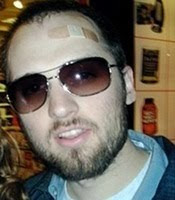It would be inaccurate to say that Darren Aronofsky’s film, The Wrestler, tells the story of one man. Instead, the film tells the story of two men living in the same body. Just as the listing of his complete name in the credits suggests, Randy ‘The Ram’ Robinson (played by Mickey Rourke) has another person within him, ripping him apart from within. The Wrestler is my favorite movie released in 2008, and one of my top ten favorite movies of this decade.

Personally, I never expected that a film about professional wrestling could become one of my favorites. The Wrestler might be remembered as one of the greatest sports movies, except for the glaring issue that professional wrestling is not a real sport. The film itself does not make any claims to the contrary, and it embraces the premise that professional wrestlers are performers. From the beginning, the film seeks to explore exactly how real a fake performance can be. During an early fight scene, Randy removes a hidden razor blade from his wrist and slices his forehead while on the mat, to make himself bleed. Legend has it that actor Mickey Rourke actually cut himself to make the scene work. Although the competition is staged, the bodies in the ring are certainly real. The strain of the activity takes a toll on the human body as heavy as any sport, through the physical wounds and also the training and drug regimen that support the performance. Mortality rates for professional wrestlers are through the roof, a harsh truth that confirms the real damage from this phony sport. The Wrestler succeeds as a film, not only because it highlights the physical reality of the performance, but because it emphasizes the consequences below the surface as well.


